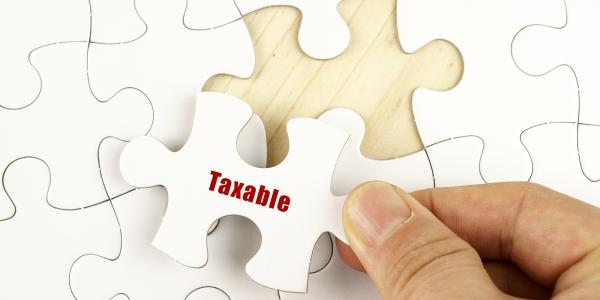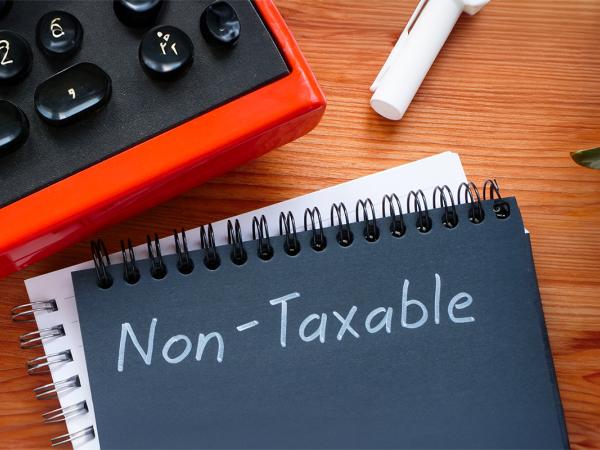Taxable benefits in kind
On this page, we look at some of the more common benefits-in-kind that you are likely to come across. We also explain how you work out the value of the taxable benefit.

Content on this page:
Introduction
If your employer provides you with a taxable benefit, such as use of a company car, the taxable benefit must be valued. For most types of benefit-in-kind, the law sets out how you should work out the value. We provide further guidance below for common benefits-in-kind.
You pay tax on the taxable value of the benefit. We explain how you pay tax on benefits-in-kind on our page paying tax on employment benefits.
How to work out values
- Company cars
-
If your employer allows you to use a car that they or the business owns or leases (often called a company car) and if you can use it privately as well as for business purposes, you usually have to pay tax on the value of the benefit.
The benefit to you is based on:
- the list price of the car and any accessories,
- the vehicle's carbon dioxide emissions,
- the type of fuel the car uses, and
- the date of registration of the car.
A car benefit applies even where there are no carbon dioxide emissions, for example the car is propelled solely by electricity. However, the charge is much lower.
There are additional exemptions and alterations to the calculations if you are disabled and meet certain rules.
HMRC provide useful information about company car benefits on GOV.UK. Although this is aimed at employers, it will also be useful to employees.
HMRC have a calculator for working out car and fuel benefit. You can find the calculator on GOV.UK.
You can notify HMRC that your car or fuel benefit is wrong through your personal tax account through GOV.UK or by contacting HMRC.
No benefit will arise if an employee has some incidental private use of a pool car. A pool car is essentially a shared vehicle which is mainly used for business purposes and is not taken home by an employee.
- Fuel for company cars
-
If you are provided with free fuel for a company car that you can use privately, you must pay tax on the benefit. This is in addition to the charge for being provided with the company car in the first place. You can use HMRC's calculator to work out your fuel benefit. You can find the calculator on GOV.UK. Note that for these purposes a hybrid car is treated as a petrol or diesel car, as appropriate.
There is no taxable fuel benefit if your employer only pays for fuel for business purposes. As such, they may ask you to not use the car for private journeys, pay for private fuel yourself or reimburse them for the cost of fuel used for private travel.
HMRC publish advisory fuel rates which an employer may use to reimburse the cost of business mileage an employee has incurred or to recoup the cost of private mileage where the employer paid for the fuel.
Electricity is not treated as a fuel for fuel car benefit purposes (this means there is no fuel benefit charge in relation to electric vehicles), however there are other rules to be aware of. You can read more about the rules for charging electric vehicles in HMRC’s technical manual. This reflects the recent change in policy that a benefit in kind no longer arises where an employer reimburses an employee for the cost of electricity used to charge company cars and vans at home.
- Company vans
-
Your employer may allow you to use a company van. If you use the van mainly for work purposes, you will only pay tax if you use it for private journeys other than journeys between home and work (so for example, to regularly go to the supermarket).
You have no tax to pay if you only use the company van to make business journeys in connection with your job – the only journeys you make in it are work journeys and travelling between home and work.
The onus is on your employer to demonstrate to HMRC that you have no tax to pay. To assist your employer in this you may need to keep your own records of the mileage, date and purpose of journeys.
Also, since 6 April 2021 there is no tax to pay if the company van is propelled solely by electricity, whether or not there is any private usage.
Unless it is an electric van, you will have to pay tax on the benefit of the company van if you make private journeys, unless there is only minor private use – that is using the van for a private purpose maybe only once or twice a year (for example, using it to go to the dump once or twice a year). Such use is usually considered insignificant and you should not have to pay any tax.
Where you do have to pay tax on private use of the van, the amount of benefit that will be included on your P11D/in your PAYE coding notice for 2024/25 is £3,960, assuming your employer has not chosen to payroll this benefit.
If you pay tax at the UK basic rate, this will work out as a tax bill of £792 (20% x £3,960).
The above figures are reduced in some situations, for example:
- if you do not have use of the van for the whole tax year,
- where someone else also uses the van for private travel, or
- where you pay your employer towards any private use.
HMRC provide useful information about the company van benefit on GOV.UK. Although this is aimed at employers, it will also be useful to employees. If you drive a double cab pick up, you may be interested in this government update.
- Fuel for company vans
-
If your employer supplies you with free or subsidised fuel for private use (except for electricity for an electric van), you must pay tax on the benefit.
For 2024/25, the taxable benefit is £757. If you are a UK basic rate taxpayer, you will pay an extra £151.40 tax for the year (£757x 20%).
- Living accommodation
-
If a house, flat or any property owned or rented by your employer is made available for your use, there is a taxable benefit, unless the accommodation is ‘job-related’ – see our page on non-taxable payments and benefits from employment for more details.
The taxable benefit is the higher of:
- the annual value of the property – the letting value of the property, or the rent that might reasonably be expected to be obtained, and
- the rent your employer pays, if the property is rented.
You can deduct any amount you make good (pay) to the employer from this value.
Where the employer pays the council tax or water rates, such payments will count as wages for both tax and National Insurance contributions (NIC).
Where the employer owns the accommodation, if the living accommodation cost more than £75,000 there is an increased charge in addition to the basic taxable benefit. Note that the employer’s cost should include the cost of any improvements. The charge is worked out as:
- the cost less £75,000, multiplied by the appropriate percentage, less
- any excess of rent paid by the occupier over the letting value.
The appropriate percentage is the official rate of interest charged on beneficial loans, available on GOV.UK.
The living accommodation benefit is reduced:
- where the property is used for only part of the year, or
- if the property has part which is used only for business, the benefit can be reduced proportionately.
If more than one employee uses the accommodation the total benefit is the amount that would be charged to a single employee, and the benefit is shared equally between the employees.
If the employer pays any household bills on behalf of the employee, for example, gas, electricity, and telephone bills, this will give rise to an additional and separate benefit.
HMRC provide useful information about the living accommodation benefit on GOV.UK. Although this is aimed at employers, it will also be useful to employees.
- Vouchers
-
A voucher is any document such as a ticket that you can exchange for goods or services.
If the voucher is for cash or can easily be converted into cash (rare) then the full value for which the voucher can be exchanged is treated as normal pay and will be taxed and subject to Class 1 NIC under PAYE. In reality, this will have limited application.
For any other non-cash vouchers, the benefit is the amount your employer paid for it. Shopping vouchers or gift vouchers are typically counted as non-cash vouchers. They taxable in the same way as other non-cash benefits, but they should be subject to Class 1 NIC under PAYE.
There are a number of exempt non-cash vouchers. These include childcare vouchers up to certain limits, or transport vouchers such as those to obtain a car parking space at or near the workplace.
Some trivial benefits up to a value of £50 (such as giving employees a voucher as a Christmas gift) can be tax-free. To the extent there is a benefit charge, the employer can protect you from it by paying the tax instead using a PAYE settlement agreement if the payment meets the criteria.
HMRC provide useful information about vouchers on GOV.UK. Although this is aimed at employers, it will also be useful to employees.
- Employer’s credit cards
-
If you are allowed to use a credit card provided by your employer, your taxable benefit is the amount paid by your employer for any goods or services you buy on that card, unless these are purely for business purposes and you have your employer’s authority for the purchase on their behalf.
HMRC provide useful information about credit cards on GOV.UK. Although this is aimed at employers, it will also be useful to employees.
- Private medical insurance
-
Your employer might pay for you to have private medical cover. This is usually via a group plan organised by your employer. The benefit on which you pay tax is the cost to the employer for the cover you receive. In certain circumstances, your employer may pay up to £500 for you to receive private medical treatment without that being a taxable benefit to you provided that certain conditions are satisfied. You can read more about this on our page on non-taxable benefits.
HMRC provide useful information about the private medical insurance benefit on GOV.UK. Although this is aimed at employers, it will also be useful to employees.
- Loans provided by employers
-
Your employer might give you a loan, for example to help you pay for a season ticket for your commute to work. Your employer may do so at a cheap rate of interest, or interest free. If this applies to you, there may be a taxable benefit if the amount of the loan exceeds £10,000 in the tax year. This is worked out based upon an assumed interest charge at the official rate of interest less any interest you have paid. The official rate is generally fairly close to that charged by banks and building societies. You can find the official rate of interest on GOV.UK.
If the loan is subsequently written off – that is, your employer decides they do not want you to pay the money back – the taxable benefit, in other words the amount you pay tax on, will be the amount written off. You will also have to pay Class 1 NIC on the value of the benefit.
HMRC provide useful information about the cheap loan benefit on GOV.UK. Although this is aimed at employers, it will also be useful to employees.
- Work mobile phones and/or home internet access
-
If an employer provides you with one mobile phone and pays all the bills including line rental and private calls, this is exempt from both tax and NIC.
If you have your own mobile phone contract but your employer agrees to pay the bills or if the costs are reimbursed by your employer, you are liable to both tax and NIC. You may be able to claim tax relief for business use.
Where the employer pays your home telephone bills, you are taxed on the payment unless the private use of the phone is insignificant. The amount of the benefit is the total payment less any business calls, but not any part of the line rental. You are liable to NIC on the amount paid by the employer for both line rental and private calls.
If the contract for your home phone is between the telephone line provider and your employer, then the benefit to you is the cost of line rental and calls less any business calls and any amount made good by you to your employer.
If, however, there is a definite need for a telephone to be provided and the employer ensures that private calls are minimal, it is possible you will not be charged for either the line rental or calls where the private use is minimal compared with the overall cost.
If your employer contracts directly with a supplier to provide you with broadband in your home purely for business, and your private use is minimal, then provided the package cost is not affected by private use, you do not have a taxable benefit. This is different to where you have the broadband contract and your employer pays or reimburse some or all of the costs. If you work at home, see also the guidance on the page on employment expenses.
HMRC provide useful information about mobile phones on GOV.UK. Although this is aimed at employers, it will also be useful to employees.
- Assets from your employer
-
To work out the taxable value of an asset your employer loans to you for your private use, you take 20% of the value of the asset at the time it was first given to you to use.
However, there is generally no taxable benefit on the use of cycles and cycle safety equipment or on the use of a commercial vehicle, more than 3.5 tonnes weight, including any fuel, unless the main use of the vehicle is for private purposes.
If your employer decides to give you a second-hand asset, the taxable benefit is the higher of:
- the market value at the date you were given the asset, and
- the original market value.
less any amounts that have already been taxed on the previous user or users – for example, if you have already used the asset on a loan basis.
- Goods or services
-
The taxable benefit in these cases is just the extra cost to the employer of providing you with the benefit. So, if you work for a footwear manufacturer and you get free shoes, the benefit is the cost of the materials and manufacturing costs of the shoes.
If, however, you worked for a train company and you got free travel on their trains, there is no additional cost to the employer in providing the benefit, as the trains run anyway, so it is tax free.
- Childcare costs
-
There are details of the tax-free childcare scheme in our benefits section.
In the benefits section, you can also read about employer-supported schemes for childcare that provide tax advantages, including workplace nurseries and childcare vouchers.
More information
On GOV.UK, you can use the A to Z list of expenses and benefits to see the tax and NIC treatment of any benefits your employer gives you. Although this is aimed at employers, it will also be useful to employees.
For information on non-taxable benefits, visit our page about non-taxable payments and benefits from employment.
There is a quick guide to employment benefits aimed at employees on GOV.UK.
HMRC’s technical information on employment benefits can be found in their Employment Income Manual starting at page EIM21600.



